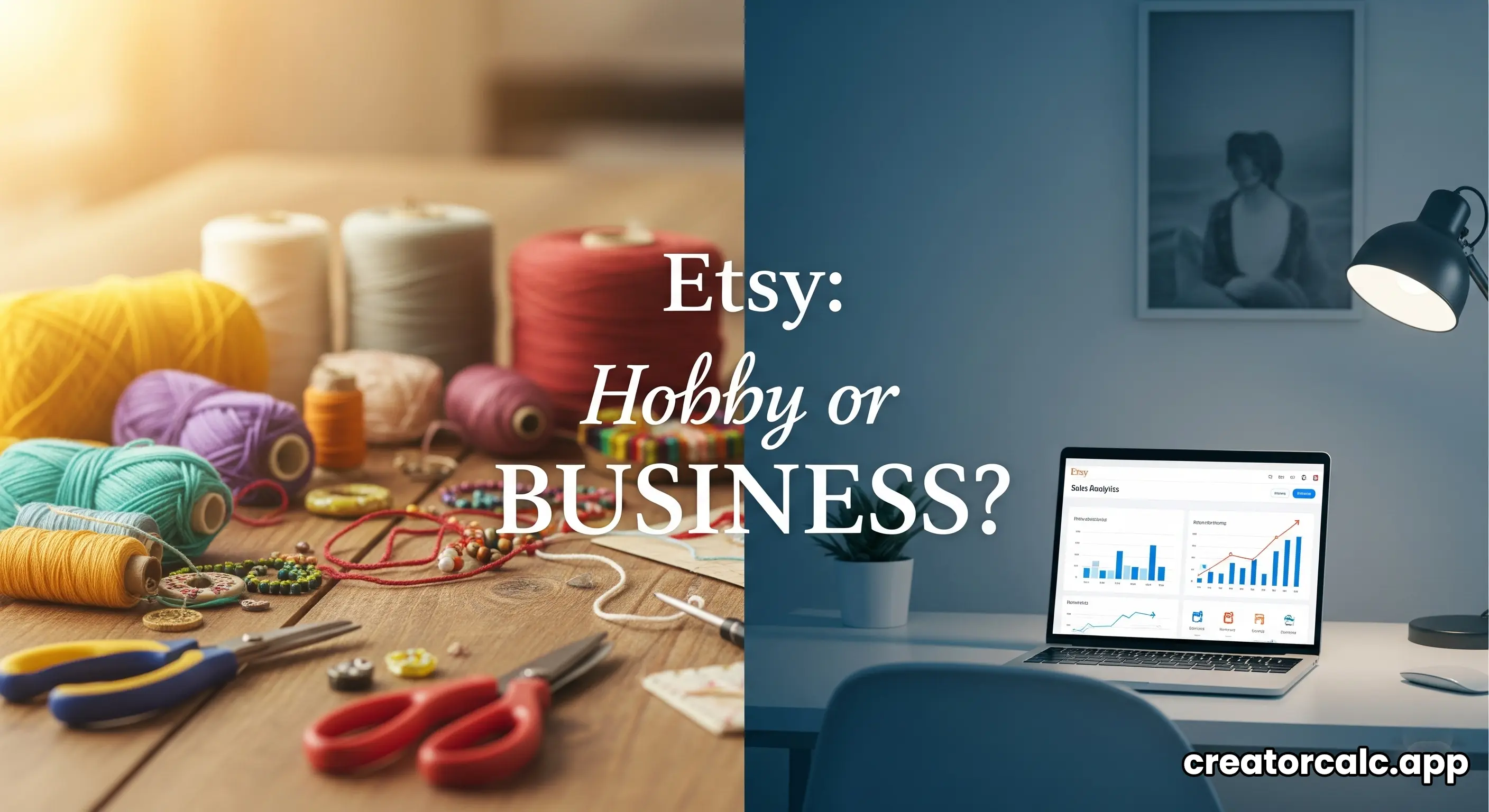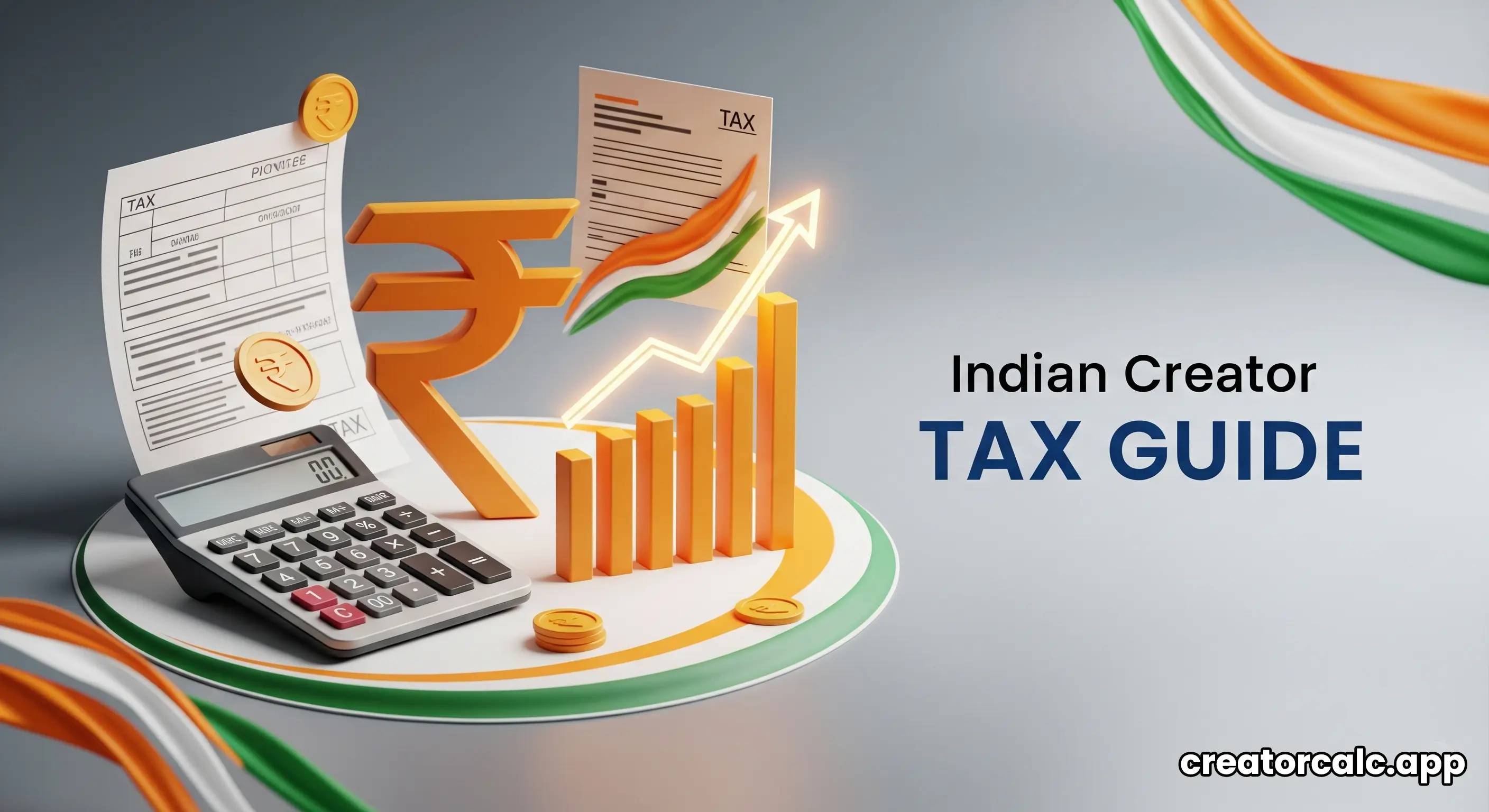You love creating. You opened an Etsy shop to share your passion with the world. Maybe you've made a few sales, which is exciting! But now you're at a crossroads. Is your Etsy shop a hobby or a business? This is a critical question. The answer will change how you manage your shop, your finances, and your time.
Treating your shop like a hobby is fun and low-pressure. But treating it like a business is how you achieve real growth and financial success. This guide will help you understand the key differences. We'll show you the mindset and practical steps needed to transform your creative passion into a profitable business.

The Mindset Shift: Hobby vs. Business
The biggest difference is in your mind. It's about how you think about your shop. This mindset affects every decision you make.
Hobbyist Mindset
- "I create when I feel inspired."
- "I'll work on my shop when I have free time."
- "Making a little extra money is a nice bonus."
- "I don't really track my expenses."
Business Owner Mindset
- "I have set goals for my shop's growth."
- "I schedule specific hours each week for my business."
- "Profitability is a primary goal."
- "I track every single income and expense."
A business owner is proactive, not reactive. They don't wait for inspiration; they build systems. This is the first and most important step to decide if your Etsy shop is a business.
Advertisement
Financial Differences: Tracking and Taxes
How you handle money is a clear sign of whether you have a hobby or a business.
Keeping Finances Separate
A hobbyist might mix their shop's money with their personal money. A business owner opens a separate bank account for their shop. This makes it much easier to track income and expenses. It's a professional practice that will save you a lot of headaches, especially during tax time.
Tracking Everything
A business needs to know its numbers. You should track your revenue, cost of goods sold, and all expenses like Etsy fees and shipping supplies. This tracking helps you understand your real profit, which we explain in our guide on how to price your products.
Understanding Taxes
If you run your shop as a business, you must handle taxes professionally. In many countries, you can claim your business expenses (like material costs) to reduce your taxable income. A hobbyist does not have these obligations or benefits. Consulting a tax professional is a wise step.

Legal and Branding Differences
Taking your shop seriously means making it official.
Business Registration
While you can operate as a sole proprietor, you might consider officially registering your business. This adds a layer of professionalism and legal protection. It also allows you to open a business bank account in your brand's name.
Investing in Your Brand
A hobbyist might use a simple logo. A business owner invests in their brand. This includes a professional logo, high-quality product photography, and professional packaging that creates a memorable unboxing experience.
Time Management and Goals
Finally, a business runs on goals and schedules, not just on feelings.
- Set Business Hours: Dedicate specific hours each week to your shop. This includes time for making products, listing new items, marketing, and customer service.
- Set Clear Goals: Don't just hope for sales. Set specific, measurable goals like, "I want to achieve 50 sales by the end of this quarter."
- Focus on Growth: A business owner is always learning. They spend time learning about marketing, Etsy SEO, and new product trends to grow their shop.
Frequently Asked Questions (FAQs)
1. Can I start as a hobby and become a business later?
Yes, absolutely! This is how most successful Etsy shops start. You can begin as a hobby to test your products. Once you see that there is demand and you are ready to commit more time, you can make the switch to a business mindset.
2. At what point am I legally considered a business?
This varies by country. Generally, if your primary purpose is to make a profit and you work at it regularly, tax authorities will consider you a business. It's best to check your local government's regulations.
3. Does being a business take the fun out of creating?
It can feel that way sometimes, but it doesn't have to. The structure of a business can actually free you up. When you know your finances are handled and you have a clear plan, you can relax and be more creative during your dedicated "making" time.
4. Do I need to register my business name?
If you operate under your own name, you usually don't have to. But if you want to operate under a specific brand name (like "Creative Craft Co."), you may need to register it. This protects your brand name from being used by others.